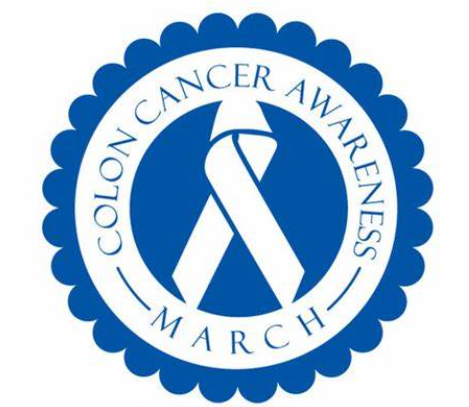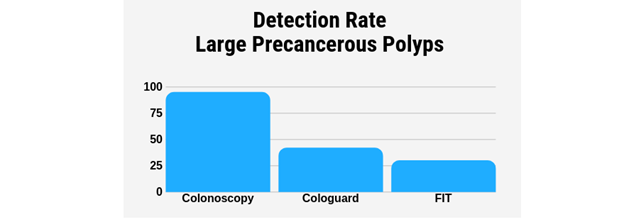- March 1, 2024
- Posted by: Admin
- Category: Blog 2

You may be wondering why all the fuss about bottoms and bowels. Aside from colorectal cancer being the third most common cancer worldwide and the second leading cause of cancer deaths in the United States, it’s one of the most preventable. Despite its prevalence, many cases of colorectal cancer can be averted through routine screening. Screening helps detect those sneaky polyps early on, giving us a fighting chance to beat colorectal cancer.
Understanding Colorectal Cancer
Colorectal cancer affects either the colon or rectum, typically starting as small, noncancerous growths known as polyps. Without early detection and removal, certain polyps evolve into cancerous lesions over time. The insidious nature of colorectal cancer often means symptoms do not surface until the disease has advanced. This highlights the importance of proactive screening.
It is estimated that by the year 2035, the total number of deaths from rectal and colon cancer will increase by 60% and 71.5%, respectively. These figures may differ from country to country depending on the degree of economic development (Sawicki, et al).
Common Signs of Colorectal Cancer
Symptoms, when they occur, may include:
Diarrhea
Constipation
Blood in stool
Fatigue
Unexplained weight loss
Abdominal pain
Bloating
If you experience any of these symptoms, seek medical attention. However, it’s important not to jump to conclusions, as other conditions can also cause these symptoms.
The Role of Screening
Screening saves lives. It plays a crucial role in detecting cancer in its early stages, often before symptoms arise. Early detection significantly increases the chances of successful treatment and survival.
Types of Screening
Colonoscopy
The colonoscopy, dreaded though it may be, is the gold standard for screening. It involves the insertion of a flexible tube with a camera into the rectum and colon to detect polyps or abnormal growths. While it requires fasting and drinking a not-so-tasty solution to clean out your system, think of it as a colon cleanse with potentially life-saving benefits. Colonoscopy is highly accurate, detecting 95% of large polyps, and can prevent colorectal cancer by removing precancerous polyps during the procedure. It’s also effective at detecting cancer in its early stages, when treatment is more likely to be successful. Plus, if you have a normal result, you typically don’t have to worry about another colonoscopy for 10 years. With modern sedation techniques, the procedure itself is quite manageable.
Stool Tests
Fecal occult blood tests (FOBT) and fecal immunochemical tests (FIT) are non-invasive, painless ways to check for blood in your stool. They detect 74% of cancers and 24% of large polyps. They are not recommended for high-risk individuals, including those with a personal or family history of colorectal cancer or certain medical conditions. It’s important to note that a positive result should be followed up with a colonoscopy, as false positives and false negatives do occur.
Stool DNA Test
This method detects specific DNA markers associated with colorectal cancer in the stool sample. It can detect 92% of cancers and 42% of large precancerous polyps.

Virtual Colonoscopy (CT Colonography)
A less invasive alternative to traditional colonoscopy, virtual colonoscopy uses computed tomography (CT) scans to produce detailed images of the colon and rectum.
Research
A recent study published in The New England Journal of Medicine uses blood tests to screen for colorectal cancer in average-risk individuals without symptoms. It accurately detected malignancy in 83% of people confirmed to have cancer. While promising, it’s not as sensitive as colonoscopy.
Conclusion
Colorectal cancer is no laughing matter. If you’re 45 years or older, ask your healthcare provider about screening. By raising awareness about the importance of colorectal screening, we can save lives and reduce the burden of colorectal cancer on individuals, families, and communities.
References
Cancer Prevention Overview (PDQ®)–Patient Version. National Cancer Institute. https://www.cancer.gov/about-cancer/causes-prevention/patient-prevention-overview-pdq
Cancer Stat Facts: Colorectal Cancer. National Cancer Institute. https://seer.cancer.gov/statfacts/html/colorect.html
Colorectal Cancer Statistics. National Cancer Institute. https://youtu.be/oQWcNHQ7TlI
March is Colorectal Cancer Awareness Month. American Association for Cancer Research. https://www.aacr.org/patients-caregivers/awareness-months/colorectal-cancer-awareness-month/
Sawicki T., Ruszkowska M., Danielewicz A., Niedźwiedzka E., Arłukowicz T., Przybyłowicz K.E. (April 2021). A Review of Colorectal Cancer in Terms of Epidemiology, Risk Factors, Development, Symptoms and Diagnosis. https://www.ncbi.nlm.nih.gov/pmc/articles/PMC8122718/
U.S. Preventive Services Task Force. Colorectal Cancer: Screening. https://www.uspreventiveservicestaskforce.org/uspstf/index.php/recommendation/colorectal-cancer-screening
You may be wondering why all the fuss about bottoms and bowels. Aside from colorectal cancer being the third most common cancer worldwide and the second leading cause of cancer deaths in the United States, it’s one of the most preventable. Despite its prevalence, many cases of colorectal cancer can be averted through routine screening. Screening helps detect those sneaky polyps early on, giving us a fighting chance to beat colorectal cancer.
Understanding Colorectal Cancer
Colorectal cancer affects either the colon or rectum, typically starting as small, noncancerous growths known as polyps. Without early detection and removal, certain polyps evolve into cancerous lesions over time. The insidious nature of colorectal cancer often means symptoms do not surface until the disease has advanced. This highlights the importance of proactive screening.
It is estimated that by the year 2035, the total number of deaths from rectal and colon cancer will increase by 60% and 71.5%, respectively. These figures may differ from country to country depending on the degree of economic development (Sawicki, et al).
Common Signs of Colorectal Cancer
Symptoms, when they occur, may include:
Diarrhea
Constipation
Blood in stool
Fatigue
Unexplained weight loss
Abdominal pain
Bloating
If you experience any of these symptoms, seek medical attention. However, it’s important not to jump to conclusions, as other conditions can also cause these symptoms.
The Role of Screening
Screening saves lives. It plays a crucial role in detecting cancer in its early stages, often before symptoms arise. Early detection significantly increases the chances of successful treatment and survival.
Types of Screening
Colonoscopy
The colonoscopy, dreaded though it may be, is the gold standard for screening. It involves the insertion of a flexible tube with a camera into the rectum and colon to detect polyps or abnormal growths. While it requires fasting and drinking a not-so-tasty solution to clean out your system, think of it as a colon cleanse with potentially life-saving benefits. Colonoscopy is highly accurate, detecting 95% of large polyps, and can prevent colorectal cancer by removing precancerous polyps during the procedure. It’s also effective at detecting cancer in its early stages, when treatment is more likely to be successful. Plus, if you have a normal result, you typically don’t have to worry about another colonoscopy for 10 years. With modern sedation techniques, the procedure itself is quite manageable.
Stool Tests
Fecal occult blood tests (FOBT) and fecal immunochemical tests (FIT) are non-invasive, painless ways to check for blood in your stool. They detect 74% of cancers and 24% of large polyps. They are not recommended for high-risk individuals, including those with a personal or family history of colorectal cancer or certain medical conditions. It’s important to note that a positive result should be followed up with a colonoscopy, as false positives and false negatives do occur.
Stool DNA Test
This method detects specific DNA markers associated with colorectal cancer in the stool sample. It can detect 92% of cancers and 42% of large precancerous polyps.

Virtual Colonoscopy (CT Colonography)
A less invasive alternative to traditional colonoscopy, virtual colonoscopy uses computed tomography (CT) scans to produce detailed images of the colon and rectum.
Research
A recent study published in The New England Journal of Medicine uses blood tests to screen for colorectal cancer in average-risk individuals without symptoms. It accurately detected malignancy in 83% of people confirmed to have cancer. While promising, it’s not as sensitive as colonoscopy.
Conclusion
Colorectal cancer is no laughing matter. If you’re 45 years or older, ask your healthcare provider about screening. By raising awareness about the importance of colorectal screening, we can save lives and reduce the burden of colorectal cancer on individuals, families, and communities.
References
Cancer Prevention Overview (PDQ®)–Patient Version. National Cancer Institute. https://www.cancer.gov/about-cancer/causes-prevention/patient-prevention-overview-pdq
Cancer Stat Facts: Colorectal Cancer. National Cancer Institute. https://seer.cancer.gov/statfacts/html/colorect.html
Colorectal Cancer Statistics. National Cancer Institute. https://youtu.be/oQWcNHQ7TlI
March is Colorectal Cancer Awareness Month. American Association for Cancer Research. https://www.aacr.org/patients-caregivers/awareness-months/colorectal-cancer-awareness-month/
Sawicki T., Ruszkowska M., Danielewicz A., Niedźwiedzka E., Arłukowicz T., Przybyłowicz K.E. (April 2021). A Review of Colorectal Cancer in Terms of Epidemiology, Risk Factors, Development, Symptoms and Diagnosis. https://www.ncbi.nlm.nih.gov/pmc/articles/PMC8122718/
U.S. Preventive Services Task Force. Colorectal Cancer: Screening. https://www.uspreventiveservicestaskforce.org/uspstf/index.php/recommendation/colorectal-cancer-screening
